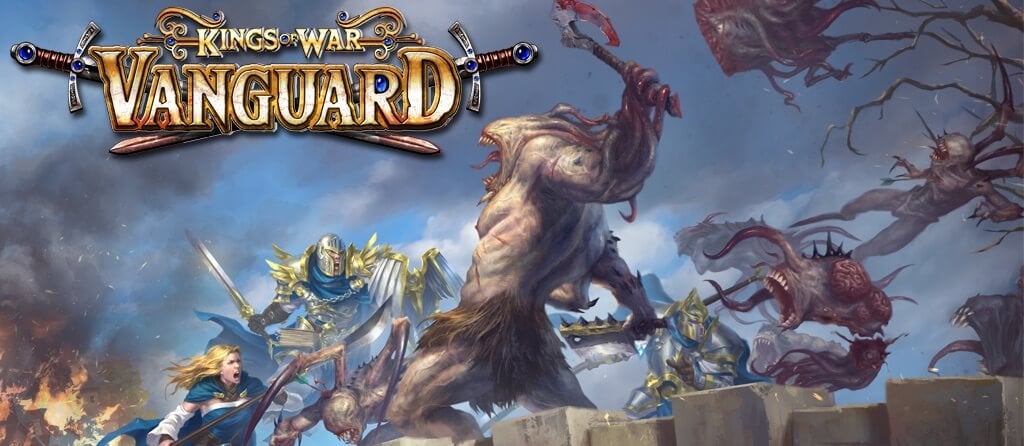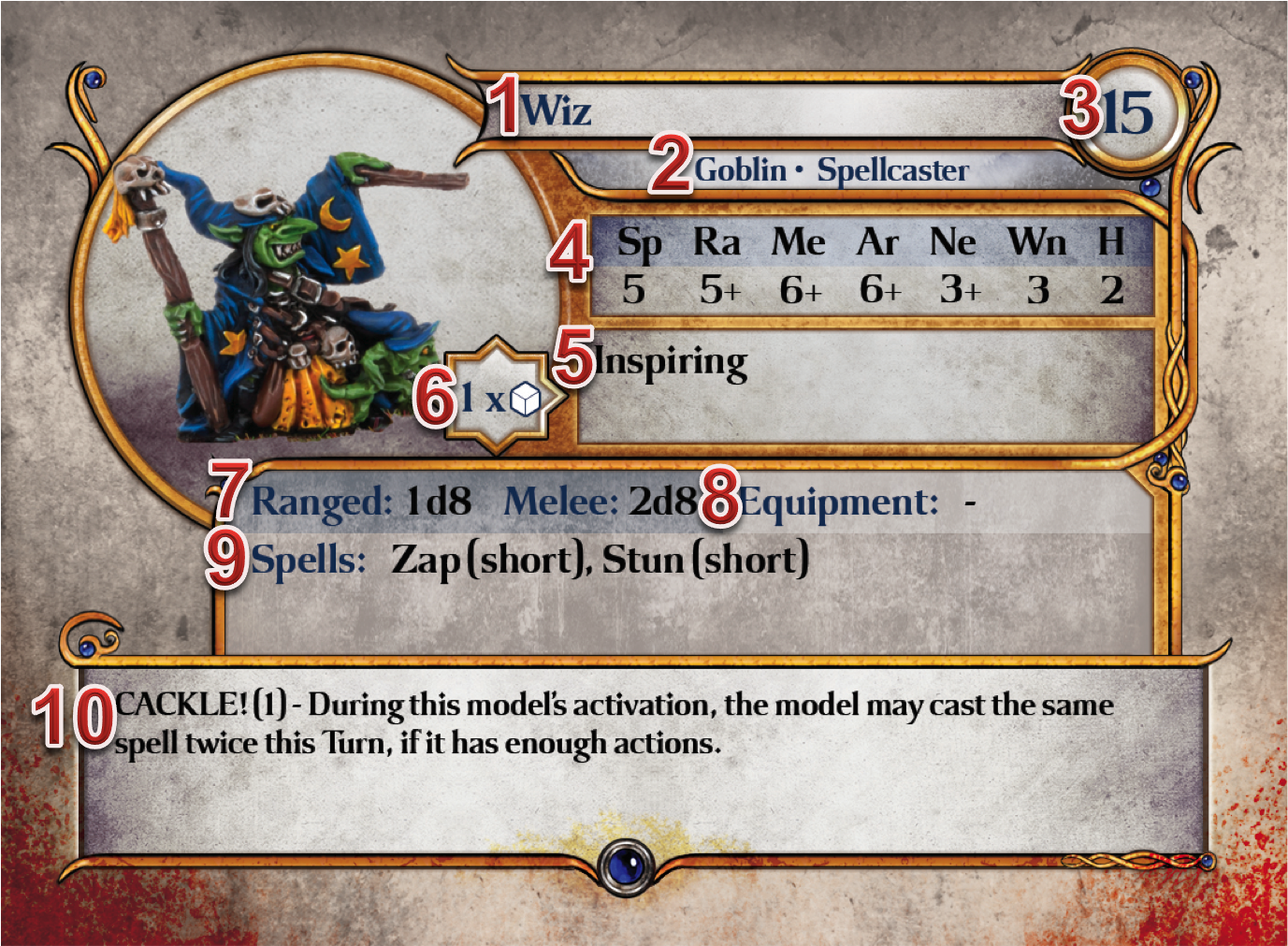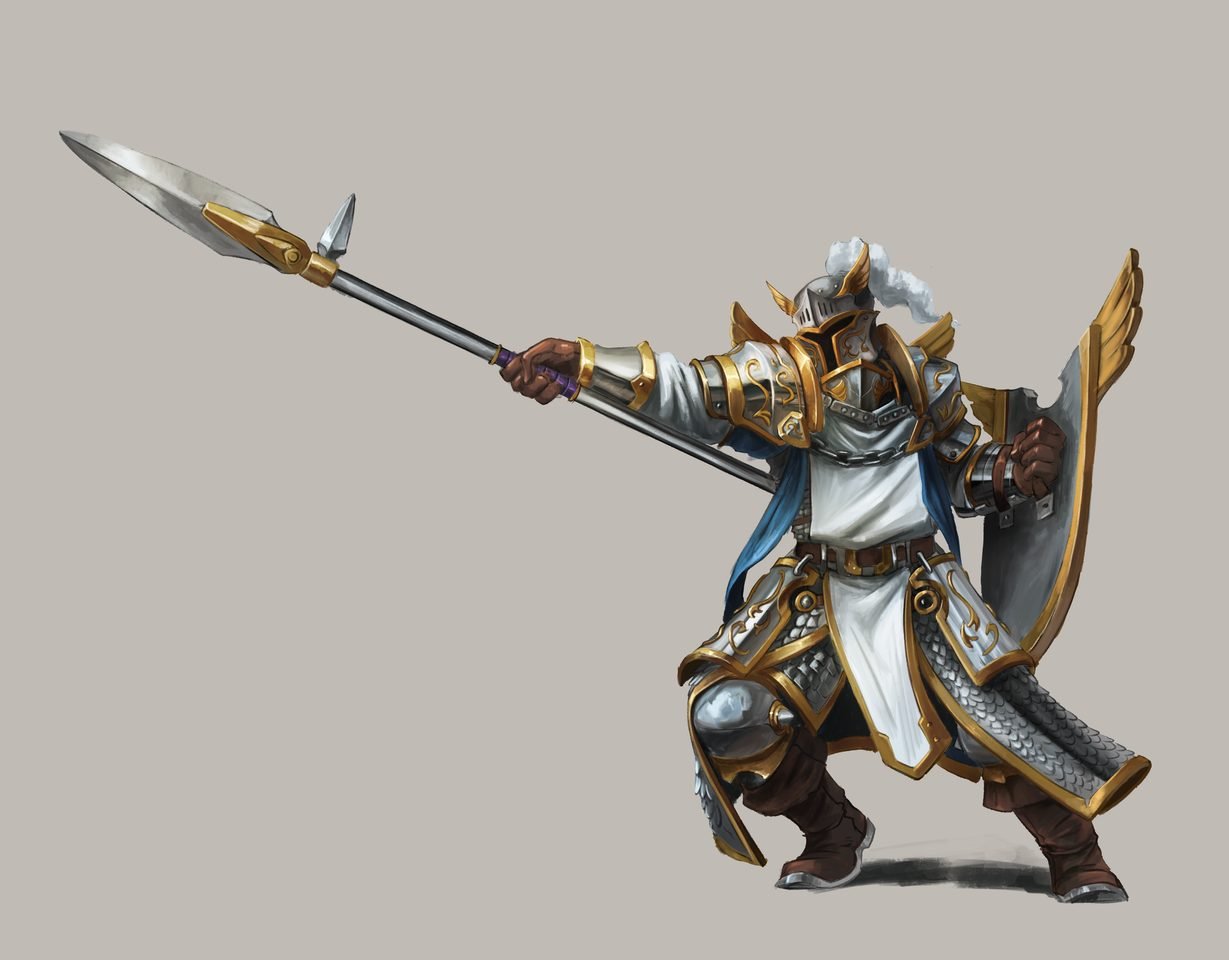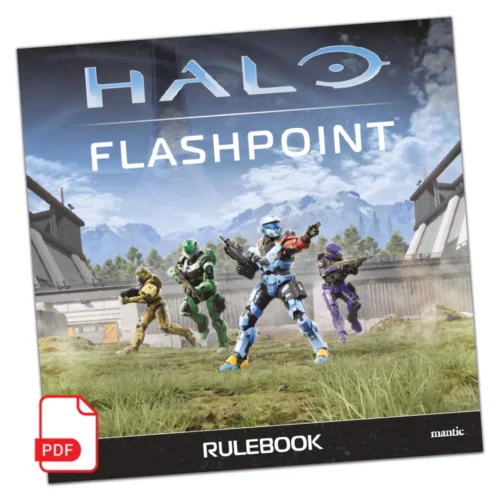Kings of War Vanguard – Combat
23rd Oct 2017
Rob Burman
Kings of War: Vanguard will be launching on Kickstarter on November 1st. Throughout this week, we’ll be exploring the game in more detail and giving you a taste of the rules. In today’s blog, we’re describing the basics of combat.

Just in case you missed it on last Friday’s blog, the Kings of War: Vanguard Kickstarter launches on November 1st. After having so much fun going through some of the rules last week, we’ve decided to continue exploring Vanguard in more detail this week as well. So, make sure you keep coming back to the Mantic Blog to find out more about this exciting skirmish game.
Today, we’re going to explain a little bit about combat. Remember, the stat card we showed previously? Well, first let’s take a look at the stats marked number ‘7’. Here you can see that the Wiz rolls one D8 for a ranged attack and two D8s for a melee attack. We settled on D8s after a great deal of deliberation and a lot of experimentation. Initially early in development we had a system that used a mixture of D6s and D8s, which was dependant upon how skillful the character was in combat.

However, as you can probably imagine, keeping track of D6s or D8s was a little cumbersome so we scrapped this idea in favour of D8s. As much as we like D6s for Kings of War, in Vanguard you’ll be rolling a lot less dice during combat, so having D8s gives us some extra granularity to play around with. In some ways using D8s is a good way of ‘future proofing’ the game, in case we want to add weaker or stronger characters down the line.
Once we’d settled on D8s, we deliberated about whether or not the number 8 should ‘explode’ when rolled. Ultimately we decided that the opportunity to go into ‘overdrive’ by rolling 8s fitted nicely with the idea of individuals going all out for victory. It also helped to create those cinematic moments that you’ll end up talking about after games. ‘Remember, that time the goblin took out an Earth Elemental after rolling six 8s?’ It may be extremely unlikely, but all us goblin lovers can dream.
Anyway, going back to the stat card. Firstly you’ll check the range or melee attack stat to see how many D8s you’ll be rolling. Next up, check the ‘Ra’ or ‘Me’ stat for the target number you’ll need to roll. Any successes count as potential hits against your opponent. Finally your opponent rolls the number of dice equal to the potential hits and is trying to equal or exceed the ‘Ar’ statistic. This gives the defending player the opportunity to add some extra dice using any spare Power in order to keep their most valuable units alive!

DON’T WAIT TO RETALIATE
However, that’s not all the defending player can do. Should they wish, the defending player can also retaliate against the attack - as long as they’re not already activated and fatigued. The intention to retaliate is declared following the initial combat.
Once a model has retaliated after an attack, they’re marked as fatigued. This means they can be activated later in the turn, however they’ll only be able to perform a short action (just like the normal rules for fatigue). If a model is already activated, it is possible to retaliate during combat but this will mark the model as activated and fatigued, so they can't retaliate again. As a result, there’s a definite decision to be made when retaliating. Do you sacrifice part or potentially all of your activation in order to immediately strike back and avoid any potential follow-up attacks with outnumbering bonuses? Or do you wait it out to make the most of your activation?
What’s more, you can also potentially trick your opponent into retaliating earlier in the turn by sending a weaker model into combat. Your opponent may retaliate as the red mist descends but this will hamper them for the rest of the turn and you can send in stronger models later in the turn to attack, safe in the knowledge your opponent won’t retaliate.

 GBP
GBP  EUR
EUR  USD
USD 